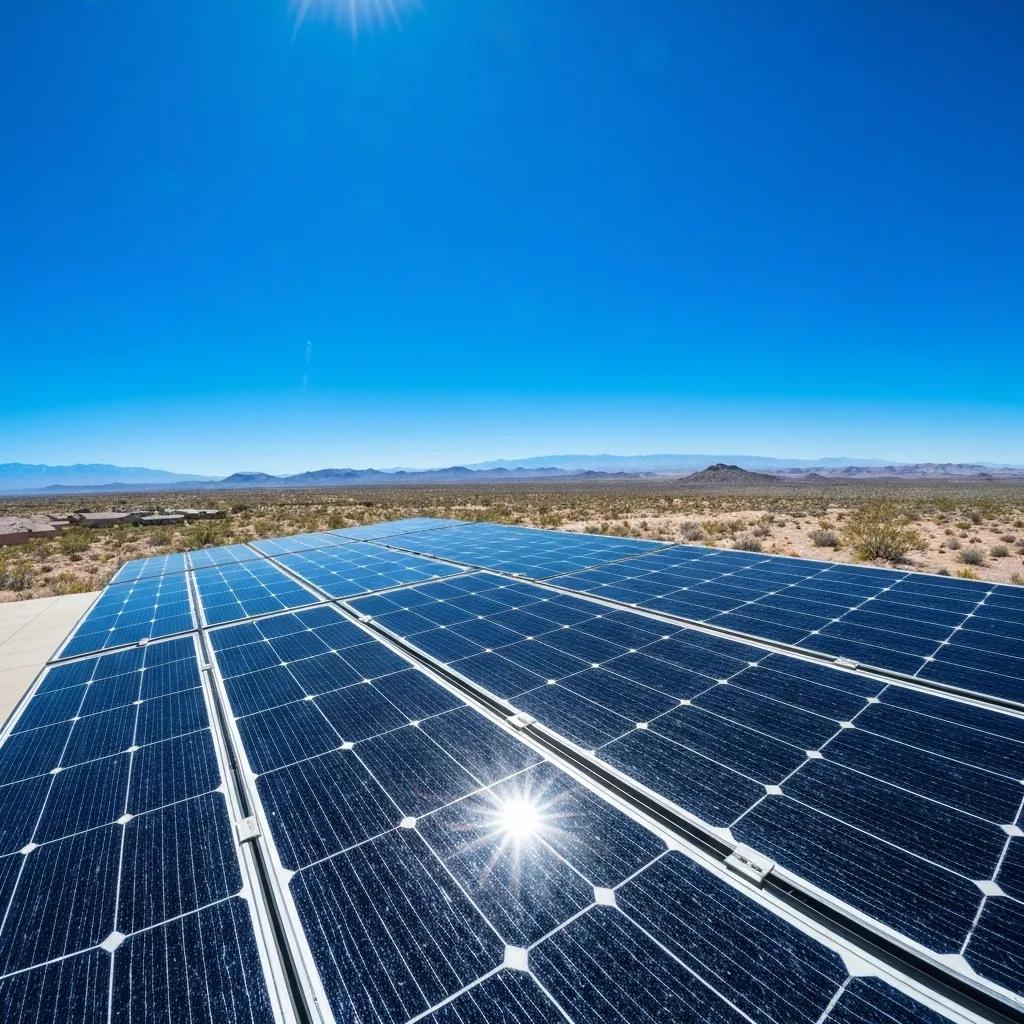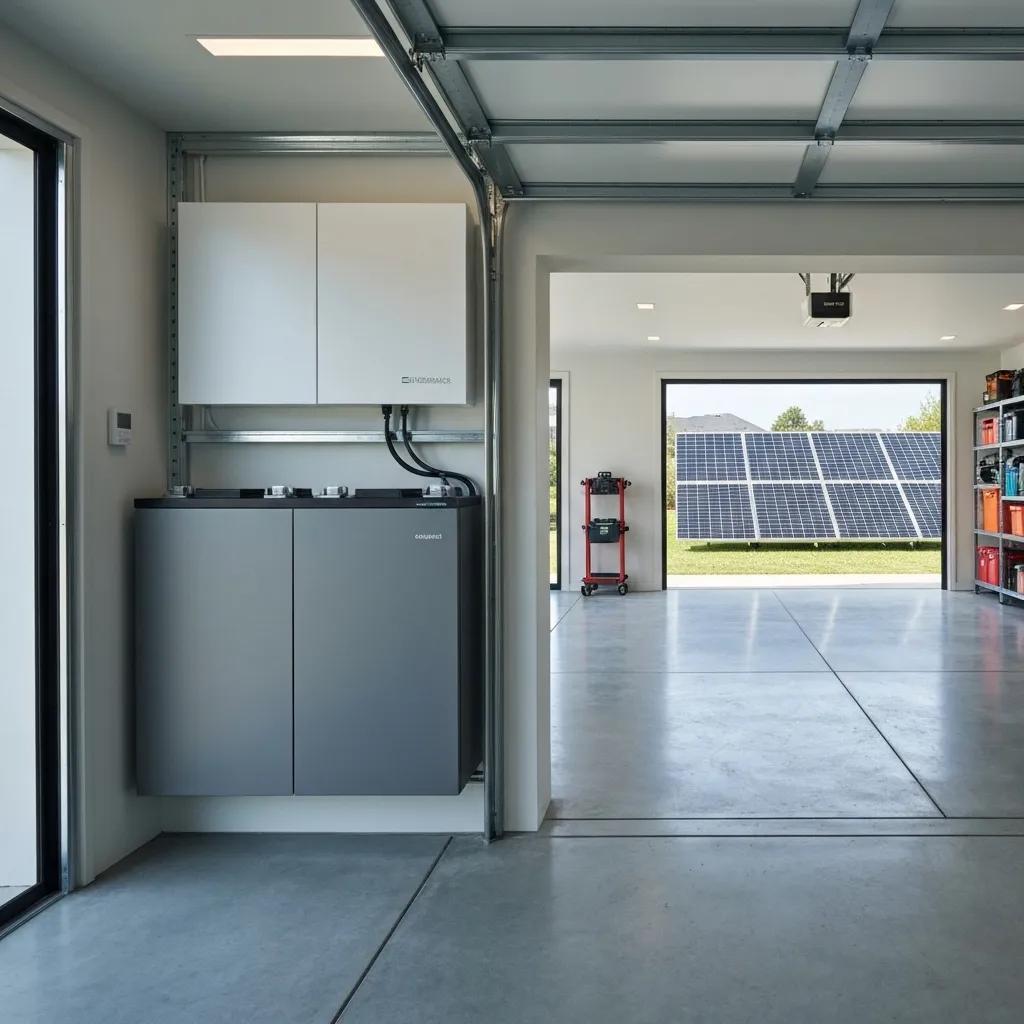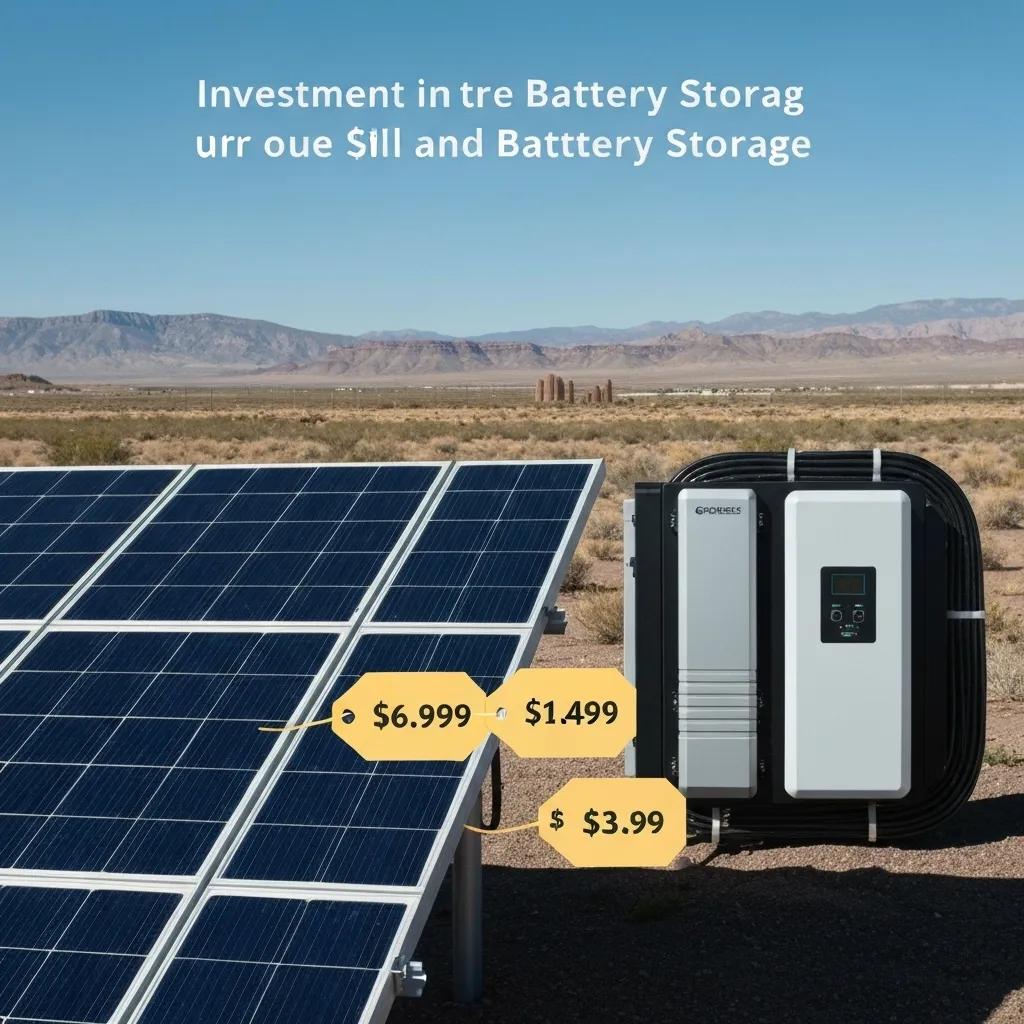
Boost Your Nevada Home or Business with Solar Panel System Upgrades and Battery Storage: Costs, Benefits, and Incentives
Enhance your Nevada home or business’s energy independence, slash your utility bills, and boost your property‘s value by upgrading your solar panel system. As energy demands climb—whether from charging electric vehicles, expanding your living space, or facing rising utility rates—adding solar panels or battery storage is the smart solution. This guide breaks down the advantages of solar panel upgrades, when and how to expand your system, the types and benefits of battery storage, cost considerations and financing, the latest Nevada and federal incentives for 2025, why Vegas Solar LLC is your ideal partner, and how to keep your system running at peak performance.
What Are the Key Benefits of Upgrading Your Solar Panel System?
Upgrading your solar panel system means adding more photovoltaic modules or integrating energy storage to generate more power, increase reliability, and speed up your return on investment. For instance, adding high-efficiency panels to your existing setup generates more clean kilowatt-hours, especially during peak usage times, while reducing your reliance on the grid.
How Does Adding More Solar Panels Increase Energy Efficiency?
By expanding your system’s total generation capacity, adding more solar panels allows you to use more of your own solar power, particularly when your energy needs are highest.
- Boosts your self-consumption rates by better matching your energy production with your home or business’s energy use.
- Helps smooth out your energy production throughout the day, aligning it more closely with your afternoon and evening energy needs.
- Minimizes energy loss and “inverter clipping” that can occur when your panels are operating at their maximum output.
Expanding your solar array leads to more consistent annual energy production and less dependence on the grid during expensive peak hours.
What Advantages Do Home Battery Storage Systems Provide?

Home battery storage systems offer crucial backup power during outages, empower your energy independence, and maximize the value of the solar energy you generate.
- Provides reliable backup power, keeping your essential circuits running when the grid fails.
- Optimizes your energy use by storing excess solar power generated during the day for use during expensive peak-rate hours.
- Enables participation in grid services, helping commercial clients reduce peak demand charges and manage their energy costs.
Pairing your solar panels with a battery system gives homeowners peace of mind with reliable energy and lower electricity bills.
How Can Upgrades Increase Property Value and Reduce Utility Bills?
Expanding your solar system and adding storage makes your property more attractive and valuable by showcasing cutting-edge energy technology and demonstrating significant utility savings.
- Improved net metering credits lead to consistent reductions in your monthly bills.
- A more robust system capacity appeals to buyers looking for energy-efficient homes.
- Lower monthly energy expenses provide immediate financial benefits that are attractive to appraisers.
Upgraded solar installations offer a clear return on investment through long-term savings and increased market appeal.
When and Why Should You Add More Solar Panels to Your Existing System?
Deciding when to expand your solar system involves looking at your energy usage patterns and how your current system is performing. If your energy consumption is increasing due to charging an electric vehicle, a growing family, or expanding your business, adding more panels can help manage these higher demands without the expense of grid upgrades.
What Signs Indicate You Need a Solar Panel Expansion?
You can identify the need for a solar panel expansion by monitoring your energy consumption and production data:
- Your monthly peak energy demand consistently exceeds your current solar system‘s output.
- You’ve installed high-energy-use appliances or devices, such as electric vehicles or heat pumps.
- You have available space on your roof or property for additional panels with minimal shading.
These signs suggest that adding more solar panels can effectively offset your increased energy needs and maintain your system’s efficiency.
What Is the Step-by-Step Process for Adding Solar Panels?
An efficient expansion project follows a clear, organized process:
- Evaluate your current inverter capacity and the layout of your roof or installation site.
- Design the expanded array, optimizing panel placement, orientation, and tilt for maximum sunlight capture.
- Secure all necessary permits from your local authorities.
- Install the mounting hardware and make the electrical connections to your inverter.
- Commission the new panels and integrate them into your existing monitoring system.
This systematic approach ensures your expanded system is compatible, safe, and performs at its best.
How Do System Compatibility and Roof Conditions Affect Upgrades?
The feasibility and cost of your upgrade depend on system compatibility and your roof‘s condition:
- Your inverter must be sized correctly to handle the additional panel wattage without reducing output.
- Your roof must have the structural capacity and angle to safely support the extra solar modules.
- The existing wiring infrastructure and any required rapid shutdown systems can impact installation complexity.
A thorough site assessment is crucial to avoid compatibility issues and ensure you meet all regulatory requirements.
What Are the Different Types of Solar Battery Storage Systems Available?
Solar battery storage systems come in various types, differing in their chemistry, lifespan, and intended applications, from compact residential units to large-scale commercial solutions.
How Do Lithium–Ion and Flow Batteries Compare for Solar Storage?
Both battery types offer reliable energy buffering, but flow batteries are particularly well-suited for applications requiring extended use and high energy throughput.
What Are the Benefits of Battery Storage for Residential vs. Commercial Use?
For homes, battery storage primarily offers backup power and savings through time-of-use optimization. For businesses, it also provides significant benefits in reducing demand charges and managing energy loads.
- Homeowners gain protection against power outages and optimize their use of self-generated solar power.
- Businesses can lower their peak demand charges and ensure critical operations continue uninterrupted.
- Both residential and commercial users benefit from increased energy resilience and a greater adoption of sustainable energy.
Choosing the right battery capacity and discharge strategy for your specific needs will maximize both financial returns and energy reliability.
How Does Battery Storage Provide Backup Power During Outages?
When a grid outage is detected, battery storage systems automatically switch to an independent power mode, supplying stored energy to your essential circuits. Intelligent management systems ensure that critical loads remain powered until solar generation is restored or the grid connection is re-established.
How Much Does It Cost to Upgrade Solar Panels or Add Battery Storage in Nevada?

The cost of upgrading your solar panels or adding battery storage depends on the equipment chosen, labor involved, and the overall system size. Various financing options are available to help manage the initial investment.
What Factors Influence Solar Panel Upgrade Costs?
The price range for expanding your solar array is influenced by the quality of the equipment, local labor rates, and the specific permitting requirements in your area.
How Much Do Home and Commercial Battery Storage Systems Typically Cost?
- Residential systems (10–20 kWh) typically range from $7,000 to $15,000 when installed.
- Commercial systems (50–200 kWh) can start around $35,000 and go upwards of $100,000.
- Custom configurations, extended warranties, and advanced monitoring features will affect the final price.
Selecting the right capacity and battery chemistry will ensure you get the best long-term value for your investment.
What Financing Options Are Available for Solar Upgrades?
- Solar loans offer a way to own your equipment with competitive Annual Percentage Rates (APRs).
- Leasing agreements and Power Purchase Agreements (PPAs) allow you to benefit from solar with minimal upfront costs.
- Utility and private financing programs provide options for deferred payments.
These financing structures are designed to align your payment schedule with your projected energy savings, often resulting in positive cash flow from day one.
What Nevada and Federal Incentives Can Reduce Your Solar Upgrade Costs in 2025?
How Does the Federal Solar Tax Credit (ITC) Apply to System Upgrades and Battery Storage?
The federal Investment Tax Credit (ITC) offers a 30 percent credit on eligible solar and battery storage system costs through 2025. Homeowners and businesses can apply this credit directly to their federal income tax liability, significantly reducing the net cost of installation by nearly one-third.
Federal Solar Tax Credit – Overview
The Investment Tax Credit (ITC) provides a 30 percent credit on qualified solar and paired battery expenditures through 2025. Home and business owners can claim this credit against their federal income tax liability, reducing net installation costs by nearly a third.
Internal Revenue Service, “Energy Credits for Individuals,” (2024)
What Are the Nevada-Specific Solar Incentives and Battery Storage Rebates?
Nevada offers additional programs to enhance your solar savings:
Nevada Energy Storage Incentive Program
The Nevada Energy Storage Incentive offers rebates for residential energy storage systems. This program helps reduce the upfront costs of installing battery storage, making it more accessible for homeowners.
NV Energy, “NV Energy Storage Incentive,” (2024)
How Does Net Metering Work with Upgraded Solar Systems in Nevada?
In Nevada, net metering allows you to receive credits for excess solar energy sent back to the grid at 75 percent of the retail electricity rate. These credits carry over month-to-month and can be used to offset future electricity bills, meaning your upgraded system can generate significant savings beyond just covering your immediate energy needs.
Why Choose Vegas Solar LLC for Your Solar Panel System Upgrade and Battery Installation?
What Experience and Services Does Vegas Solar LLC Offer for Upgrades?
Vegas Solar LLC provides comprehensive services for your solar panel expansion and battery integration needs, including custom system design, high-quality products, and installation by certified professionals. We manage every step, from initial site assessment to final system commissioning and ongoing support.
How Do Customer Testimonials Reflect Successful Solar Upgrades?
Our satisfied local customers consistently report average reductions in their utility bills of 60 percent and reliable backup power during grid outages, demonstrating Vegas Solar LLC’s dedication to delivering exceptional performance and customer satisfaction.
What Free Consultation and Support Does Vegas Solar Provide?
We offer a no-obligation consultation that includes a thorough site evaluation, a detailed projection of your potential savings, and a review of available financing options. This empowers you to make informed decisions and take full advantage of available incentives.
How Can You Maintain and Optimize Your Upgraded Solar Panel System?
What Are Best Practices for Solar System Maintenance and Cleaning?
Regular maintenance is key to keeping your system running efficiently:
- Gently wash your panels with deionized water to remove dust and grime.
- Schedule annual electrical inspections to ensure wiring is secure and properly grounded.
- Monitor your inverter’s performance and promptly address any error codes.
Consistent upkeep helps maintain optimal energy production and extends the lifespan of your solar system.
How Do Solar Inverter Upgrades Improve System Efficiency?
Upgrading to smart or dual-Maximum Power Point Tracking (MPPT) inverters can significantly boost your system’s energy yield. These advanced inverters optimize the performance of individual panel strings, reduce energy losses, and provide detailed diagnostics for quicker troubleshooting.
How Can Monitoring Systems Help Maximize Solar Performance?
Integrated monitoring platforms provide real-time data on your energy generation, consumption, and battery status. Analyzing this data can help identify factors affecting performance, such as shading or equipment degradation, and reveal opportunities for further efficiency improvements.
Enhance your energy resilience and financial savings by upgrading and maintaining your solar system with expert guidance. Contact Vegas Solar LLC today to schedule your complimentary consultation and explore personalized financing solutions.
Expanding your solar array or adding battery storage is a powerful way to increase your energy independence and achieve significant cost savings. Nevada’s attractive incentives, combined with strategic system upgrades, offer a fast return on investment and boost your property‘s value. Partnering with a trusted, local installer like Vegas Solar LLC ensures your system is designed for optimal performance, reliability, and ongoing support. Start your upgrade journey today and unlock the full potential of solar energy in Nevada.
